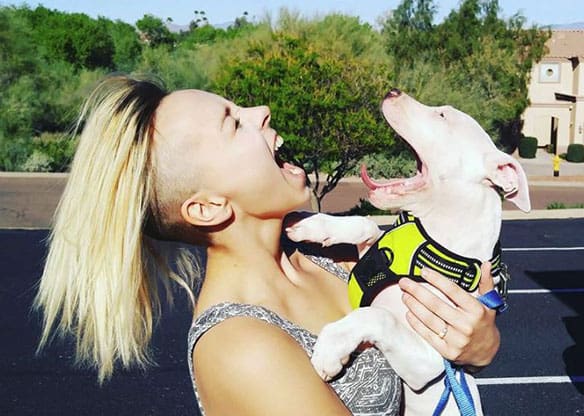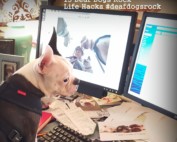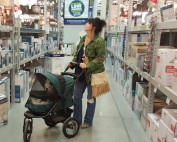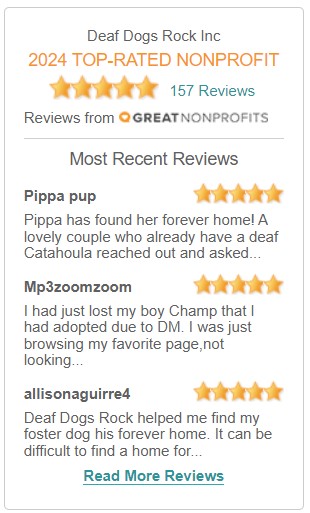I saw this article today in the Wall Street Journal and wondered how all of your deaf dogs do playing with other dogs. Nitro has been socialized since the day I got him. He is even trained to lay down when he meets another dog so he isn’t a threat (when he is on a leash that is). But when he plays with my dog Bailey he is always in her face barking very loud and he never knows when to stop. For this reason I’m not sure if he would do well or get rejected by the standards in this article. My husbands business partner has a dog named Cooper. When Nitro plays with Cooper they both play fairly rough but are at the same play level so it’s not a problem (see Nitro and Cooper playing in the pool under our favorite videos).
Anyway I thought this was an interesting article. I would love to hear from some of our deaf dog owners. What are your thoughts and experiences when it comes to having your deaf dog at doggy-daycare or playing at the local dog park?
Sit Stay Ace The Interview – Wall Street Journal online Thursday August 11, 2011. Written by Aatekah Mir
To get accepted at summer camp, it took a three-page application, a family interview and three hours of monitored playtime. The applicant: Cannoli, a dog.
On a recent summer morning, Cannoli, a seven-pound Maltese, had to wow evaluators at Camp Bow Wow in Long Island City, N.Y., in hopes of making the cut. First came a series of tough questions on the application, including: “Has your dog ever growled at or bitten another person or dog?” and “Will your dog share toys with other dogs?”
Next was the evaluation. Owner Karen Serafinko and her son, John, watched on a TV monitor as Cannoli interacted with other dogs in a yard for dogs smaller than 10 pounds. Cannoli’s evaluator came in after half an hour with a progress report. “He’s doing great. He’s having a lot of fun.”
Anyone who thinks elite preschools are rigorous enough may want to take a look at doggie day cares. They, too, are submitting prospective charges to exhaustive screenings.
Finally, the family left Cannoli at the day care for another three hours to make sure he would adjust to the new environment and playmates.
Through it all, Mrs. Serafinko, a 60-year-old fourth-grade teacher, was confident. “Our first dog, Skittles, was the nervous one. He would have definitely failed the interview,” she said. “I’m not worried about Cannoli at all.”
She was right. Cannoli passed, becoming the newest “camper,” as they’re called at Camp Bow Wow.
Interviewing and evaluating campers is one way to lower risk in a dog-eat-dog world, says Heidi Ganahl, founder and chief executive of Camp Bow Wow, with 110 camps in the U.S. “Screening the pups assures us the dogs are good candidates for our all-day play environment and







